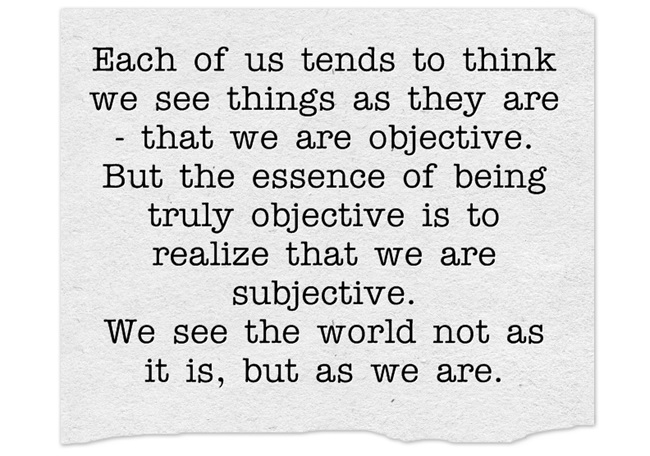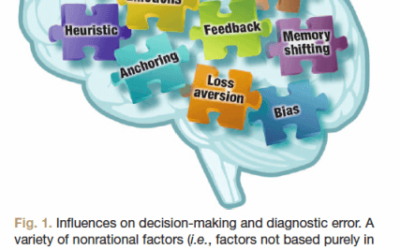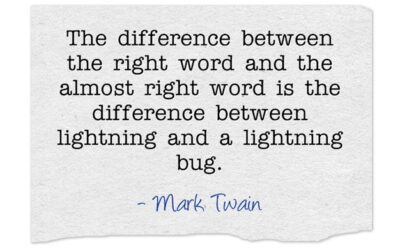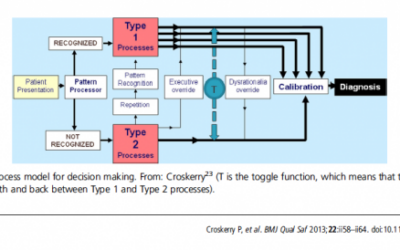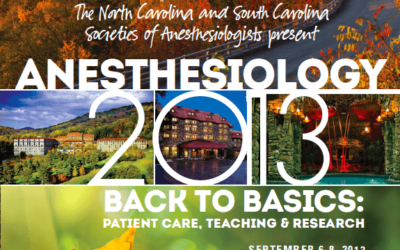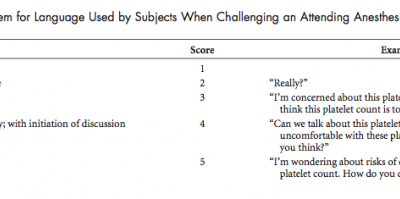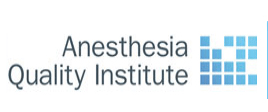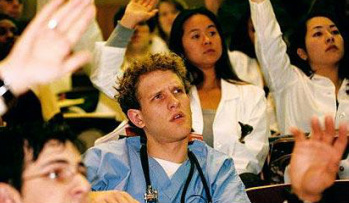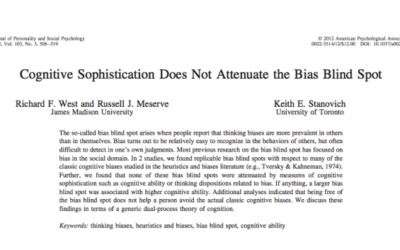Food for Thought
[vc_column_text pb_margin_bottom="no" pb_border_bottom="no" width="1/1" el_position="first last"] Wise words by Dr. Stephen Covey. We see everything through our own personal lenses, complete with bias, preference, and past experiences that shape our current frames....
Nonrational Cognitive Processes in Medical Decision Making
What are the processes that contribute to errors in medical decision making? Certainly, medical decision making is complex, and simple knowledge gaps could be to blame. But very often, experienced physicians make medical decision errors in the form of cognitive...
ASA 2013: Tweeting the Meeting
In case you missed it, the American Society of Anesthesiologists’ Annual Meeting was last week, and the ASA made an effort to engage the membership in social media efforts. There were a variety of posts and promotions intended to connect attendees around the hashtag...
San Francisco, Here We Come!
Looking forward to a great trip to sunny California! First stop, Stanford, for a collaboration about cognitive error and cognitive aids. You've probably caught wind of the EMIC - the Emergency Manual Implementation Collaborative. As part of the educational efforts of...
Food for Thought
Make sure your critical communications include the right words: explicitness, context, and intent
Dual Process Reasoning and Diagnostic Error in Medicine
What is dual process reasoning? How does dual process reasoning lead to diagnostic error in medicine? These are important patient safety questions. A recent review* by Dr. Pat Croskerry and colleagues seeks to answer those questions, and some excerpts of his work are...
Back to Basics – Patient Care, Teaching, and Research at the NCSA Meeting
This past weekend, the North Carolina and South Carolina Societies of Anesthesiologists held their annual meeting in Asheville. It was a great weekend, with a special track for residents, as well as top notch lectures and networking. Lots of very interesting...
Outcome Bias and Inadequate Patient Safety Policies
Recently, one of my favorite surgeon bloggers Skeptical Scalpel wrote about wrong sided surgery and the recent report of two such incidents in California hospitals this past week. Apparently, a hospital spokesperson said "We have policies in place, and training in...
Cockpit Culture and the Two Challenge Rule
With the crash of the Asiana 777, we're hearing a lot about "cockpit culture" and how communication across a hierarchy sometimes fails, even when the very lives of the folks communicating (or failing to do so) are on the line. Cockpit culture isn't a new concept, and...
Have You Discovered the Anesthesia Quality Institute Yet?
Today I’m in Chicago for the Anesthesia Quality Institute (AQI) meeting of the Anesthesia Incident Reporting System (AIRS) Steering Committee. What is the Anesthesia Quality Institute? What is the Anesthesia Incident Reporting System? If you are an anesthesiologist,...
On Disclosure of Medical Error and Adverse Events
What should doctors disclose to patients in the aftermath of adverse events? Does it matter if the adverse event was related to an error? Does it matter if it was preventable or not, anticipated or unexpected?Recently, I was at the Carolina Refresher Course...
Cognitive Errors in Anesthesiology and Medicine
Cognitive errors in anesthesiology, as in other medical specialties, are rooted in the low-visibility, elusive cognitive landscape of hardwired thinking processes. Various forms of bias, heuristics, non-rational thought preferences, and other factors contribute to...
Should medical residents be considered “adult learners”?
Despite that they look younger and younger with each passing year (to those of us getting older and older), medical residents are clearly adults. But are they “adult learners”? Should we treat them as such? This interesting question was raised at the Society for...
Hard Conversations: How to Teach Medical Residents the Elements of Error Disclosure
There are many potential barriers to disclosure of adverse events and medical errors. First, admission of a mistake (or even an untoward outcome in the absence of a mistake) carries risk to the caregiver. They may fear litigation, loss of job or licensure, and loss of...
What is “Crisis Resource Management”? You asked for more…
After the teamwork post, I received some emails asking about Crisis Resource Management. I suppose in my bubble of patient safety and simulation, this is a familiar theme. For some, it may be a new idea. I recommend going right to the original pioneers who adapted...
Highlights from the AeroSpace Medical Association – Including the Red Bull Stratos Space Dive!
The 47th Armstrong Lecture was presented by Dr. Jonathan Clark, Medical Director of the Red BullStratos Project, a flight test program, which successfully accomplished the highest stratospheric freefall parachute jump from 127,852 ft, achieving human supersonic...
Speaking at the 84th Annual Aerospace Medical Association
I’m getting really excited for my upcoming trip to Chicago to speak at the 84th Annual Aerospace Medical Association (ASMA) Meeting. What is Aerospace Medicine and what am I doing there? Aerospace Medicine is a field dedicated to enhancing health, promoting safety,...
Cognitive Sophistication and the Bias Blind Spot
The well-described "self enhancement bias" (the inclination of people to see themselves in a favorable light, despite evidence to the contrary) may be linked to this interesting finding: people of higher intelligence or cognitive sophistication may actually exhibit...
